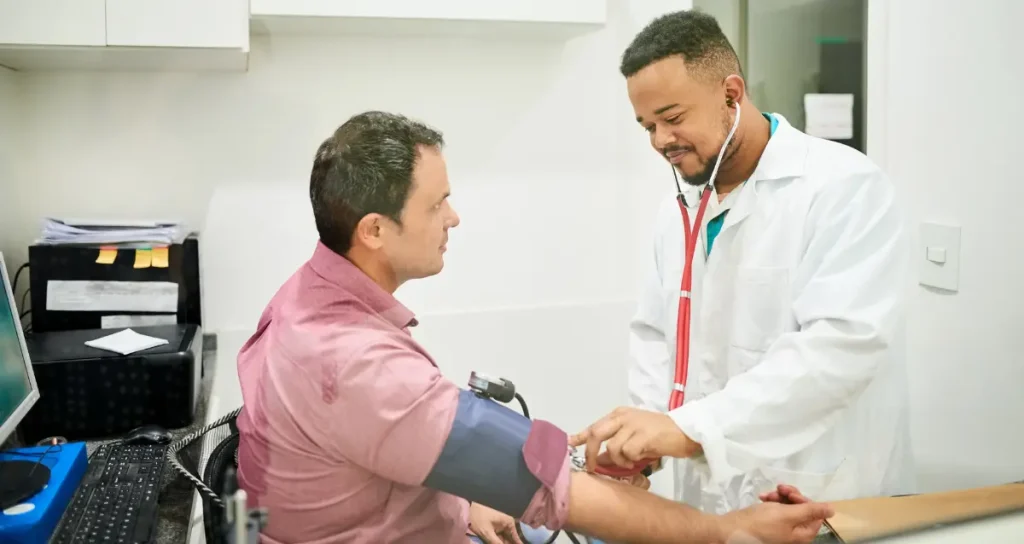
Primary care physicians are important for keeping us healthy. They are usually the first doctors we see when we have health concerns and take care of all our health needs. They look at both preventing health problems and managing ongoing issues.
These doctors build strong relationships with their patients, which helps create trust and makes patients feel comfortable. They also work with other specialists to make sure you get the best care possible. By focusing on prevention, they help save money on healthcare costs.
Find out more about why these doctors are key players in our healthcare system! Keep reading!
Building Strong Patient-Doctor Relationships
In order for healthcare to work, patients and doctors must have strong relationships. Because these kinds of relationships encourage open communication, patients feel free to talk about their worries.
Patients feel safer talking about sensitive topics once they trust the doctor. Later, doctors will be better able to make care plans that fit each person’s needs.
This relationship gets stronger over time with regular check-ups. People are then more likely to do what their doctors tell them to do, which can improve their health and make their healthcare experience better.
Preventive Care and Early Detection
Preventive care, which aims to find and lower early risk factors for diseases, is a big part of primary healthcare. Regular checkups, shots, and lifestyle counseling are very important parts.
Finding possible health problems early, before they get worse, is one of the best ways for primary care doctors to cut down on complications. Treatments often work better when they begin early.
This proactive approach makes everyone’s health better and cuts down on the need for expensive interventions. Thus, putting money into preventive care makes people healthier and lowers the cost of health care.
Coordinating Patient Care Across Specialties
A primary care doctor’s main job is to make sure that all of their patients’ specialists care for them. They make it easy for all the specialists to talk to each other and are the main people involved in a patient’s care.
This kind of doctor collects and studies important medical data to get a full picture of their patient’s health. Care that is broken up, which can happen when treatment plans are kept separate, is stopped by this method.
Primary care doctors make sure that everyone else involved has all the facts they need to make smart decisions. Treatment plans make sense and are in line with health goals when people work well together. People don’t have to go through procedures they don’t need, and they get better care overall.

Managing Chronic Diseases
People who have long-term health problems like diabetes, asthma, or heart disease need to see a primary physician often because they help them stay healthy. For each patient, they make a unique care plan, check in on them to see how they’re doing, and change their treatments if necessary.
These doctors teach their patients how to take care of themselves at home to help them form good habits. A primary care doctor can help people with long-term health problems avoid problems and live better lives in general.
Mental Health Support
Mental health is an important part of overall health, and primary care doctors often play a big part in supporting it. A lot of people who are having mental health problems first go to their primary care doctor (PCP).
If needed, they can do initial screenings, offer counseling, and refer patients to mental health specialists. PCPs can also keep an eye on the effects of mental health treatments, like medications, and make any changes that are needed. PCPs can give their patients better care as a whole when they take care of both their physical and mental health.
Reducing Healthcare Costs
By focusing on preventing diseases, detecting them early, and managing them well, primary care doctors can help lower healthcare costs for patients and the system. Preventive care can stop you from needing expensive emergency room visits or hospital stays.
Catching issues early can also help avoid more costly treatments later on. Plus, having an adult primary care physician means you get ongoing care, which can reduce the chances of needing unnecessary tests and procedures.
Patient Advocacy and Health Education
Primary care doctors care about their patients. They help people learn about their health and make sure they get the care they need.
PCPs take the time to teach their patients how to stay healthy, deal with long-term health problems, and navigate the healthcare system. Patients can make better decisions about their health when they know these things. This leads to better results and greater satisfaction with their care.

A Holistic Approach to Healthcare
A primary care doctor checks your health all around, not just your symptoms. They think about your mind, body, and the place where you are. They can then help you with both your current health problems and what might be making them happen.
As one way to figure out what’s going on, they might look at things like how stressed you are, what you eat, or where you live. Every part of your health is important to primary care doctors, who work to keep you healthy over time.
Evolving Role in Modern Healthcare
As health care changes, primary care doctors change with it. They can now offer virtual consultations thanks to telemedicine and new technology. This makes it easier for more people to get care. E-health records also let them share information with other doctors and keep track of how their patients are doing.
Primary care doctors still focus on their main goal, which is to provide complete care that is centered on the patient, even with these changes. Visit websites like erinreesemd.com to learn more about this important area of medicine.
The Vital Impact of Primary Care Physicians
Primary care physicians are very important for keeping people healthy and making their health better. Communities are healthier because of their efforts to provide preventive care.
Specialists and primary care doctors work together to make sure that patients’ needs are met. They’re very important for taking care of people with chronic illnesses well.
Primary care doctors can also help with mental health issues. By offering all-around care, they make a big difference in lowering the cost of healthcare overall.
Did you like this guide? Great! Please browse our website for more!
FURTHER READING









